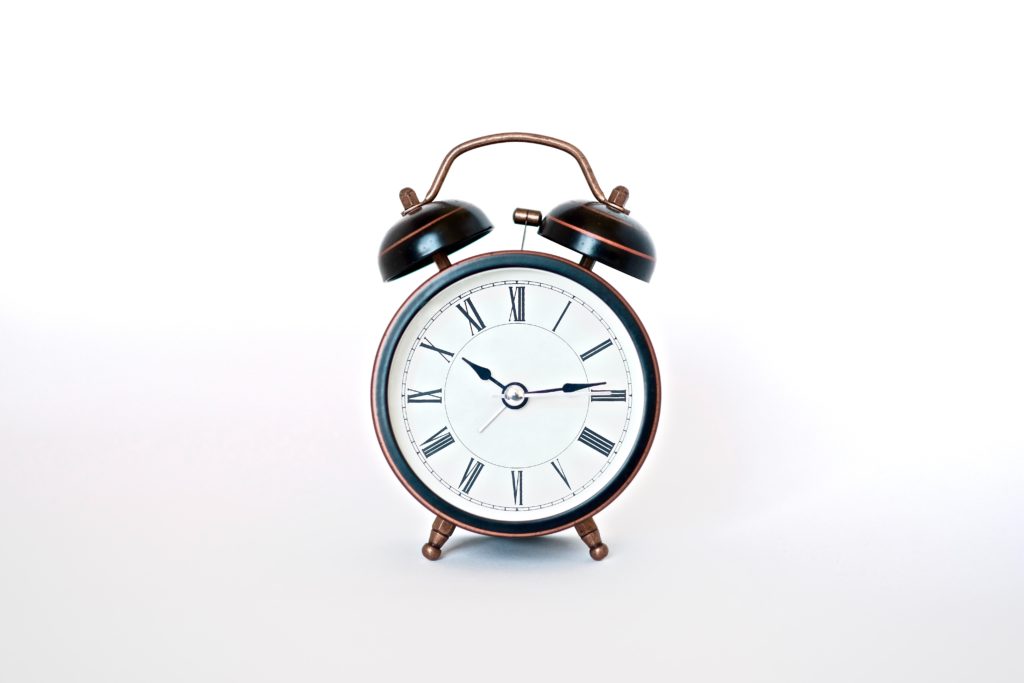How Important Is Sleep for Muscle Growth?

A lack of quality and restorative sleep may be holding you back from maximizing your muscle-building potential.
Everyone from strength training beginners to elite level bodybuilders are always looking for that extra edge.
Something that will accelerate muscle growth, speed up recovery, improve their performance in the gym, and take their physique to the next level.
You can train as hard as you want.
You can have your diet dialed in perfect.
You can take all the supplements that supposedly help build muscle and increase strength.
But if your sleep is subpar, you can expect your muscle-building progress to be subpar as well, despite doing everything else correctly.
Sleep is when you’re recovering. Your mind and body are recharging and repairing. Muscles are growing and energy is being restored.
If you struggle to get adequate amounts of quality sleep, you’ll likely struggle to build muscle as well.
“You can only build muscle from your training if you are able to recover from it.”
Sleep is vital for your overall health and well-being.
Without adequate amounts of quality sleep, many body processes that are incredibly important for your health are disrupted.
Hormones that support muscle growth drop and stress hormones rise, leading to further complications.
The hormones that regulate your appetite are thrown out of balance.
Your energy levels, motivation, and mood take a hit. Your immune system and ability to recover suffers. Insulin sensitivity decreases and your nutrient partitioning gets worse.
The list could go on and on.
Table of Contents
Testosterone
Testosterone is the main hormone that is responsible for increasing muscle size and strength.
It is thought that this vital hormone increases the number of satellite cells, also known as muscle stem cells. These cells assist in the regeneration of muscle cells. An increase in satellite cell number is a precursor to an increase in myonuclear number and muscle fiber adaptation. This ultimately leads to muscle growth.
Low testosterone due to insufficient sleep could reduce the differentiation of satellite cells to myonuclei, resulting in less muscle growth.
Having elevated protein synthesis is key for repairing damaged muscles from intense training. Testosterone promotes muscle protein synthesis.
Throughout the day, your body is constantly producing (synthesizing) and breaking down proteins. After training, muscle protein breakdown is higher than normal.
In order to build muscle, you must be in a positive net protein balance. That means protein synthesis must exceed muscle protein breakdown. This is part of the reason protein consumption is suggested after a workout—to elevate protein synthesis and shift to a positive net protein balance.
If testosterone levels are suppressed due to poor sleep, you could potentially suppress protein synthesis, which is not optimal for building muscle.
Low testosterone can reduce your motivation and pull you away from a positive state of mind.
This can affect your mood and decrease your desire to train hard. Your mental clarity and ability to concentrate can diminish.
All of this can contribute to bad workouts and therefore, slower progress and less muscle growth.
In this study, researchers found that a group of young, healthy men that reported 5 hours of sleep per night for 1 week saw a 10-15% decrease in testosterone
That’s just 1 week.
Many people go weeks and possibly months with that amount of sleep per night.
Another study examined the effects of sleep deprivation on muscle growth and recovery. The participants of this study were on a strict sleep schedule for 72 hours. One group was allowed 5.5 hours of sleep each night. The other was allowed 8.5 hours. Participants of both groups followed the same diet.
By the end of the study, the participants who slept only 5.5 hours had 60% less muscle mass, and those who slept 8.5 hours had 40% more muscle mass.
Do your best to get 7-9 hours of quality sleep each night to keep your testosterone levels in a healthy range.
Growth Hormone
Growth hormone (GH), also known as human growth hormone (HGH), contributes to promoting muscle growth, increasing strength, fat loss, and regulating the metabolism of protein, carbohydrates, and fats.
GH stimulates the liver and muscles to secrete insulin-like growth factor-1 (IGF-1). This growth factor is a mediator of growth hormone and also contributes to muscle growth.
Growth hormone increases your muscles’ capacity to absorb amino acids from protein you’ve eaten, which in turn increases protein synthesis and supports muscle hypertrophy.
Low levels of growth hormone can disrupt amino acid up take and decrease protein synthesis, potentially slowing down gains in muscle mass.
It also helps maintain healthy blood glucose levels and improves fat utilization by breaking down triglycerides to be used for energy.
Therefore, low levels of growth hormone due to poor sleep could potentially lessen the beneficial effects of your healthy diet and intense training.
Approximately 60 to 70% of GH secretion occurs during sleep and plays a major role in tissue repair and growth.
Do your best to get more quality sleep. Your muscle-building hormones depend on it.
Cortisol
Sleep deprivation increases levels of cortisol, the primary stress hormone. This hormone is catabolic, the opposite of anabolic.
If cortisol levels are constantly elevated, protein synthesis becomes suppressed and muscle protein is broken down into amino acids to use as fuel. This makes it more difficult to be in a positive net protein balance that’s required to build muscle.
The anabolic effects of insulin aren’t as powerful when cortisol is constantly elevated. Nutrients and amino acids aren’t absorbed and used very well by the body. Testosterone levels decrease and recovery from training isn’t as good as it could be.
If your recovery is disrupted, so is the muscle-building process. You definitely won’t be maximizing your results and reaching your full potential if you are not recovering well from your workouts. A constant lack of recovery that accumulates over time is a lot of added stress to the body.
Persistently high levels of cortisol stimulates the sympathetic nervous system and acts as a neurotransmitter that further intensifies anxiety, depression, fear and arousal in the brain.
Having a difficult time clearing your mind and relaxing can further suppress sleep.
This can create a dangerous cycle—you can’t sleep, cortisol levels rise, making quality sleep even more unattainable.
Since cortisol negatively impacts your mood, there’s a good chance it will also affect your motivation.
If you’re not in a good mood and your motivation is low, you’re more likely to skip workouts.
If you do make it to the gym, you probably won’t have a very good workout.
If cortisol levels are abnormally high for too long, tissues and cells can become unresponsive to cortisol, resulting in inflammation and decreased immune function.
If your immune system is weakened and inflammation in the body is high, you increase the risk of getting sick. If you’re sick, you’re unlikely to make it to the gym to train. If you do, your workout won’t be very good and neither will your rate of recovery.
I know, cortisol sounds like it’s the worst thing out there. You may be wondering why we even have it if it can cause all this harm. Well, cortisol isn’t all bad.
In healthy amounts, cortisol is a potent anti-inflammatory and boosts your immune system. It also assists with regulating blood sugar levels, salt and water balance, and blood pressure.
Lastly, it helps control your sleep-wake cycle and manages how your body uses carbohydrates, fats, and protein.
Like most things in life, in moderate and healthy amounts cortisol has it’s benefits and is not dangerous.
The problems arise when cortisol levels are excessively high for too long due to much stress placed on the body—both psychological and physiological stress.
Insulin
Sleep deprivation can make cells more resistant to insulin due to the increase in cortisol production. If cells are not sensitive to insulin, your nutrient partitioning won’t be as good as it could be.
To put it simply, nutrient partitioning refers to how well your body uses the nutrients it’s been fed. If your body handles nutrients well, building muscle comes easier and you don’t gain body fat easily. If your body does not handle nutrients well, fat gain is more likely and building muscle will be more difficult.
Insulin activates mTOR which stimulates protein synthesis and assists with the shuttling of amino acids into cells. Insulin also helps prevent protein breakdown, and is responsible for regulating the storage of muscle glycogen—your main fuel supply for intense training sessions. Without adequate amounts of muscle glycogen, the quality of your workouts will suffer as your muscles will be fatigued early on.
Insulin also assists with replenishing muscle glycogen stores immediately after training. This is important because muscle glycogen replenishment aids in muscle tissue repair and adaptation.
When you are sleep deprived, you don’t get maximum replenishment of muscle glycogen, which negatively impacts your training and recovery.
If your training isn’t going well and your recovery is hindered, you won’t be building much muscle.
Energy, Mood, & Motivation
While you sleep, your body is undergoing repair and recovery.
Muscles are growing and your physique is improving.
Simultaneously, your brain is recharging. Your energy levels, ability to focus, and your mood are all being restored.
We often think of the physical aspects of training to build muscle and strength, but how about the mental aspect?
Sleep deprivation can negatively impact your energy, state of mind, level of focus, and your mood. This could result in submaximal effort in the gym, poor technique, increase risk of injury, reduced strength and endurance, and a drop in motivation.
Submaximal effort and performance means submaximal results.
If you can’t consistently train hard and effectively, deeply focused on the muscles being worked and your technique, muscle growth will be hard to come by.
If you slept 5 hours per night all week, you probably won’t be quite as amped up for the gym.
You most likely want to go home, eat, watch television, and go to sleep. If you do make it to the gym, your workout will probably suck.
Being in the right state of mind and having energy is key for great workouts. If your sleep suffers, then you mood, motivation, and energy levels could suffer as well. Consequently, your workouts will probably suck.
Get Your 7-9 Hours
And there you have it.
Sleep plays a vital role in your overall health, well-being, and your ability to build muscle and strength.
As you can see, many of these hormones affect one another in different ways.
Some of them work synergistically to produce a greater effect. Then there’s some that work against each.
Getting plenty of sleep each night ensures your hormones are in functioning as they should be.
Getting plenty of sleep each night also allows you to restore, repair, and recharge your body and mind.
This will allow you to maximize the results from all the effort you’re putting in at the gym, and the kitchen.
When all these hormones are functioning as they should, muscle and strength is easier to build, fat is easier to get rid of, and transforming your physique is less complicated.
Get your 7-9 hours each night. Your mind and body will thank you.
